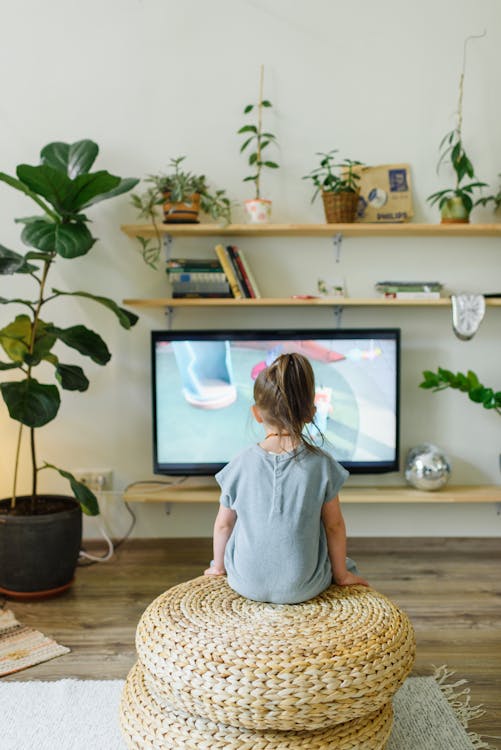
A careful and conscientious parent restricts their child’s screen time until they are over the age of twelve, and even then, keeps an eye on consumption, ensuring that their pre-teen or teen is not watching harmful content and that they still have long hours of screen-free time every day. And it can come as a shock to learn that your child has been watching television at nursery – at an age when experts say your child should be watching between one and no hours of screen-time each day.
Why Is This Bad?
Blue Light
Mobile devices, computer screens and televisions use LED lighting which emits ‘blue light’ a high energy part of the visible light spectrum. This is problematic because our bodies use the blue light found in natural daylight to set our circadian rhythm – the cycle which keeps us waking early in the morning and going to bed at night. Without it, sleep patterns become disrupted and valuable REM sleep is lost – and if this is bad for adults, it is infinitely worse for children who are constantly growing and learning, and in need of a minimum of eight hours high-quality sleep each night – even more when they are very young.
Brain Development
Screen-time for very young people – under three years old – has been shown to delay learning milestones (more about milestones can be found here: www.educator.co.uk) setting children back months and even years. This is because we live in a three-dimensional world and use all of our senses (the five ‘usual’ senses of touch, taste, smell, sound and sight, but also pressure and temperature) to experience that world. Think about going swimming at your local pool. The smell of the chlorine and the heat of the changing rooms versus the cool of the pool, the surround sound of people swimming, playing and talking all around and the feel of the water on your body, the athleticism as you swim a length or two… Now imagine that rather than experiencing this plethora of sensual stimulation, you merely watched someone on a screen swimming. You would not be able to imagine the authentic swimming experience, unless you had actually been to a pool beforehand. This example is just a metaphor for the dampening and limiting effects on your child of using a screen only to learn about the world around them.
Why is This All Right?
Controlled and Interspersed with ‘Real Life’
Most schools do have some forms of technology available to show children educational footage or occasionally to treat them to a fun short film. But, being
aware of the latest research into the use of screens on very young people, teachers will only use short videos and they will ensure that the class interacts with what they are watching. Perhaps they will point out some things to look out for: ‘There’s a dog in this film, what colour is his fur?’ for example, or, ‘Can you remember what the people saw on their walk?’ and similar questions. While these exercises are not the same as going for a walk themselves, the children are being encouraged to engage with what they see – it is not just passive watching – and, perhaps most importantly, the television watching is a small part of the school day, with plenty of mental, physical and even emotional exercise occurring during the rest of the time.
If you are worried about your child’s screen-time, do speak to your child’s teachers so they can explain the educational theory behind that screen-time and set your mind at ease.


